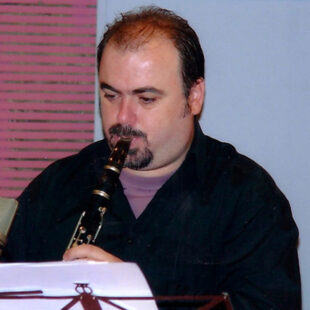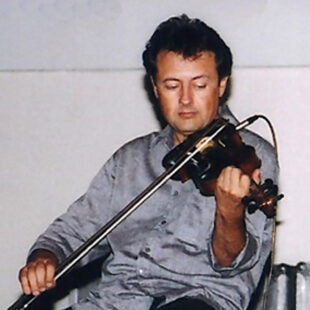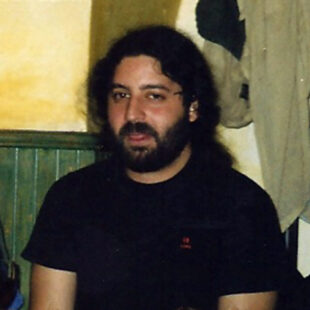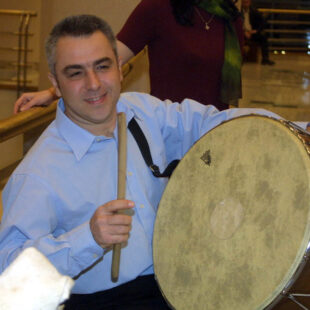00:00
Home / Her Work / Song Catalogue / Kostantis the Only Son
Kostantis the only son, young and cosseted,
his mother’s only son, her precious darling.
She’d scrub him, comb his hair and send him off to school
and the teacher would teach him, teach him to read and write.
Kostantis grew up into a man, into a fine young lad,
famed throughout the land, his mother’s pride and joy.
Translated by Michael Eleftheriou
Μοναχογιός ο Κωσταντής, μικρός και χαϊδεμένος,
έναν τον έχει η μάνα του, έναν και κανακάρη.
Τον έλουζε, τον χτένιζε και στο σχολειό τον στέλνει
κι ο δάσκαλος τον διάβαζε, γράμματα τον μαθαίνει.
Αντρειώθηκεν ο Κωσταντής κι έγινε παλληκάρι,
στη χώρα ήταν ξακουστός, στη μάνα του καμάρι.
Kostantis the only son, who would prove to be the most famous of all the Young Kostantis figures feted in song, is typical of songs onto which acritic elements have been grafted: a hero called Kostantinos, an only son of a partnerless mother, a young and brave lad.
The musician and singer Karyofyllis Doitsidis (who along with fellow singer Chronis Aidonidis —both from Karoti village near Didymoteicho in Thrace— played a key role in bringing Thracian musical tradition to wider attention) recalls knowing the song set to this melody, though in his version it continued with verses from the well-known song of the “Murderous mother”. Perhaps because those verses, in which the mother of the title kills her infant child to conceal her infidelity, were deemed too harsh and unsettling, they were dropped in favour of others of a more heroic hue — a substitution not uncommon in the folk tradition. The song, which became widely known when it was recorded by the popular singer Yiorgos Dalaras, but which is notable by its absence from every academic survey of the folk music of the Evros region, is now identified almost exclusively with Chronis Aidonidis. It was first published in 1981 by Pantelis Kavakopoulos,* who mentions that he recorded it sung by Chronis Aidonidis and his mother in their house in Pendeli in 1951 or 1952.
Miranda Terzopoulou (2017)
*P. Kavakopoulos, Τραγούδια της βορειοδυτικής Θράκης, Thessaloniki 1981
See also Kostantis.
Live recording (2004) from a concert at the Hellenic Institute of Byzantine and Post-Byzantine Studies in Venice.
Watch another version of the song sung by Domna Samiou (2004)

Singers

Clarinet

Violin

Constantinopolitan lute

Lute

Bendir (frame drum)